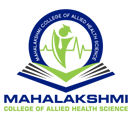
Allied health professionals play a vital role in the healthcare system, offering specialized skills and services that are essential for comprehensive patient care. There is a large demand for allied health professionals, especially in rural and medically underserved areas. These dedicated professionals mastered in allied health sciences work behind the scenes and alongside physicians and nurses to ensure patients receive holistic, evidence-based care. From diagnostic imaging to rehabilitation therapy, allied health professionals form the backbone of modern healthcare delivery, bridging gaps in patient care that traditional medical roles cannot fill alone. In this article, we delve into the different roles and responsibilities of allied health professionals signifying their importance.
Allied Health Professionals - Definition & Importance
Allied health professionals represent a large cluster of health and care service providers, which usually require specific training and/or certification, but which are distinct from the medicine, nursing and dentistry professions. These professionals come under a broad category of healthcare workers who provide support services. They can be physical therapists, occupational therapists, public health workers and more. They encompass over 100 different career paths, making them one of the most diverse segments of the healthcare workforce. The importance of allied health professionals functions cannot be overstated, as they provide critical services that directly impact patient outcomes, from emergency response to long-term rehabilitation and wellness promotion.
Also read: Scope of Allied Health Science in India
Roles and Responsibilities of Allied Health Professionals
Let’s get into the roles and responsibilities of allied health professionals, which can help us to understand their importance in the healthcare domain,
Comprehensive Healthcare Support Across Multiple Disciplines
Allied health professionals apply scientific principles and evidence-based practice in order to optimize patient or client outcomes. Allied health professionals must also attend to the prevention of disease and the management of patients with chronic disease.
Diagnostic and Therapeutic Services
Allied health professionals use cutting-edge technology to look inside a patients' bodies and help understand and diagnose any conditions they may have. Diagnostic radiographers, laboratory technicians, and medical imaging specialists form the foundation of accurate medical diagnosis. These professionals operate sophisticated equipment, analyze test results, and provide crucial data that physicians rely on for treatment decisions.
Rehabilitation and Recovery Support
Physical therapists, occupational therapists, and speech-language pathologists work directly with patients to restore function and improve quality of life. They develop personalized treatment plans, monitor progress, and adapt interventions based on individual patient needs and goals.
Emergency and Critical Care
Allied Health Professionals work in a range of emergency settings where allied health professionals provide immediate life-saving interventions. Emergency medical technicians, respiratory therapists, and perfusionists play critical roles in urgent care situations.
Administrative and Systems Management
Allied health professionals may also promote wellness and preventative medical practices. Allied health is a continually growing field that includes health information managers, medical coders, and healthcare administrators who ensure efficient healthcare delivery and maintain critical patient records.
Patient Education and Wellness Promotion
Many allied health professionals focus on preventive care, educating patients about healthy lifestyle choices, chronic disease management, and injury prevention strategies that reduce the need for more intensive medical interventions.
Learn more: 10 Reasons to Choose a Career in Allied Health Science
Are Nurses Allied Health Professionals?
While both allied health professionals and nurses provide essential patient care, their roles are often confused due to overlapping responsibilities in certain healthcare settings. Beyond available job titles, allied health differs from nursing in terms of training and education. Aspiring nurses typically earn either their Associate in Nursing or their Bachelor of Science in Nursing or both.
The confusion often arises because both groups work collaboratively in patient care teams, and some allied health professionals, such as physician assistants or nurse practitioners, may perform tasks similar to those of registered nurses. However, the fundamental difference lies in their educational pathways, scope of practice, and professional governance structures.
Conclusion
In conclusion, allied health professionals are indispensable pillars of the healthcare system, contributing expertise that spans diagnostics, therapy, emergency care, administration, and patient education. Their diverse roles not only complement the work of doctors and nurses but also extend the reach of healthcare to underserved areas, ensuring that patients receive comprehensive, patient-centered care. By blending scientific knowledge, technical skills, and compassionate service, allied health professionals bridge critical gaps in healthcare delivery, making them essential to improving outcomes and advancing the overall quality of life for communities worldwide.
At Mahalakshmi College of Allied Health Science, we are offering prestigious undergraduate programs in Cardiac Technology, Operation Theatre and Anaesthesia Technology, Accident and Emergency Care Technology , Physician Assistantand Medical Laboratory Technology. We provide exceptional education and hands-on training in healthcare, preparing students for a variety of allied health professions.
FAQs
They bridge gaps in healthcare delivery, improve patient outcomes, and extend services to underserved areas. Their specialized skills ensure accurate diagnosis, faster recovery, and effective disease management.
- Prestigious UG programs (B.Sc. Cardiac Tech, OT & Anaesthesia Tech, Emergency Care, Physician Assistant, MLT)
- Industry-driven curriculum with expert inputs
- Interactive workshops, seminars, and quizzes
- Early hands-on training in real hospital environments
- Clubs & events: Having 11+ student clubs, annual cultural and sports fests
- Sports facilities: Providing training and competitions at college & university level
- Healthy canteen & food court: Serving hygienic, health and affordable foods.
- Freedom & opportunities: Offering a supportive space to follow passions and express talent



